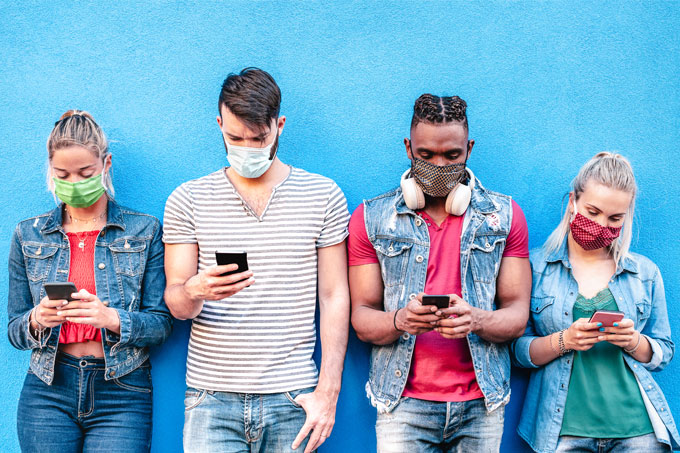As I think about today's society and the benefits technology has given to us as individuals, we take advantage of our resources and potentially ruin our reputation in the long run. Personally, I think my relationship with technology is half and half. I am on social media a lot, and it tends to take up most of my time, but it also is helping me and catering to my future goals of being on the digital communications/marketing team for a real estate company.
I do know that I try to lessen the amount of time I'm on technology. But as a college student, everything from homework to tests is on digital platforms. In some ways, I think that technology has ruined my life because of the activities that are going on around me. Not allowing myself to walk in nature or hang out with my friends because i'm on some sort of technological device is sometimes depressing, I focused on this in one of my blogs where I talked about screen time and how it affects teenagers and especially people who are dependent on technology in today's society it takes away from their social engagement. Stated in an article by Andrew Perrin, "31% of U.S. adults now report that they go online "almost constantly," up from 21% in 2015." Now that's crazy to think about because this article was published in 2021, and that was during COVID when everybody was scared/unemployed. With the effects of COVID, our social engagement declined, and screen time increased, causing that number to increase even more.
Especially in today's society, we take advantage of AI through technology. I know that I use a lot of AI to help me with ideas, and then I put it into my own words, but in some cases, people use AI to fully plagiarize their work. As we talked about in class, not all information is accurate, and it's up to us to find those sources that prove it's correct and not just us copying and pasting when we need to get an assignment done fast. I think about it all the time when it comes to information I use online, because anybody can put something up and call it a day. False news goes up every day, and people just bypass where the source came from or if the source is opinionated in one way.
Everywhere, plagiarizing is a big crime but especially at High Point University, with our honor code, we take it seriously. I see students every day using ChatGPT or other AI sources. I think it's a good source to use, but it also depends on you going that extra step to find out where that information came from instead of fully pasting and not worrying about whether you're going to plagiarize someone or if it's false information. I worry about the integrity of our society when it comes to technology because there are a lot of people in the world who rely on technological structures to share the news, but not all news is correct.
My online footprint is limited, but if you search deeper, there is a lot on me. When searching for my name on Google, primarily volleyball profiles popped up because of the recruiting process I’ve done during my senior year of high school. I do have a LinkedIn account, but it is limited, and the basic things are accessible to the public. As I finish up my first year in college, I plan on enhancing my LinkedIn profile for recruitment. Hopefully, this summer, I will be successful with my internship and can use it to get a good job in the digital industry. This class and blog has helped me to know the laws and explore the literacy of media which is very beneficial for my future career.







































